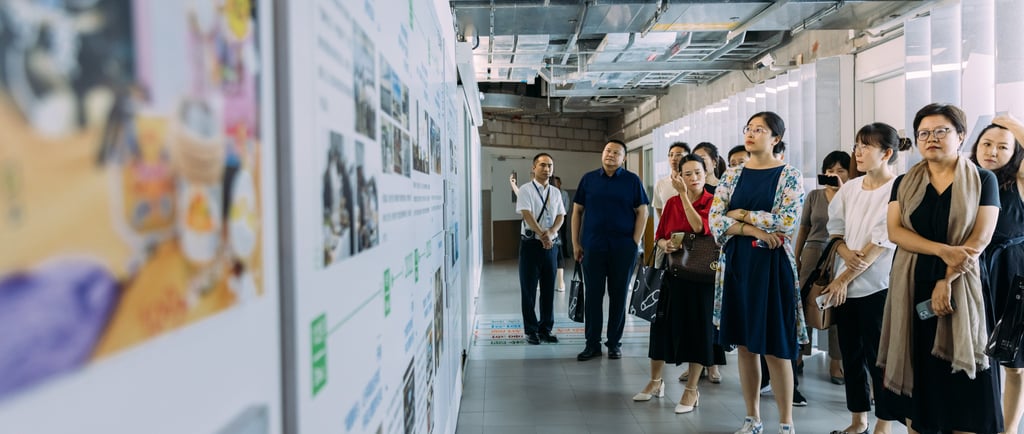From Waste to Wear: BOTTLOOP's Circular Economy in Fashion
Discover how BOTTLOOP is transforming plastic waste into sustainable fashion, pioneering a circular economy approach that's changing the industry.
FASHION FUTURES
2/18/20253 min read


Discover how BOTTLOOP is transforming plastic waste into sustainable fashion
A world that goes on grappling with the quickly building and developing crisis of plastic pollution is at a crossroads where the fashion industry may be a setting for driving the change. In December 2024, the Global Plastic Treaty negotiations came to a standstill, leaving the plastic waste issue high and dry. Recycling has proved ineffective: virtually all single-use plastics are sent to landfills, some incinerated, and others leaking into the world. The important need for now wants no further consequences to express the critical need to reduce single-use plastics and to further incentivize reusable packaging. An entirely non-extendable model supposedly does press on into another form of greater harm real that plies into the below. Plastic production is poised to triple overtime to 2060 with only limited subsequent plastic extraction.
The Challenge of Plastic Pollution
Such a linear "take, make, dispose" model becomes completely unsustainable, with the emissions it releases polluting one after another, standing evaded from action about the latest accord of the Paris Climate Agreement. The connection of the fashion world, whose bandwagon-worthy reliance on plastics continues as a norm throughout packaging and hype, must adapt to run full circular by thematic investment although rescheduling and also reuse.
BOTTLOOPs: Innovation in the Outskirts
BOTTLOOP has a different approach towards plastic waste management. Liu Xuesong, founder, comes up with a fresh Mumbai-style concept of plastic waste products, including fashionable, green, and eco-sensitive items, mixing up blockchain technology to track product lifecycles. Among various things, the processes comprise turning the PET bottles into usable fabric, which further is made into clothes and bags-a full 12-step process professionally handled.
Using Technology to Link up with Sustainability
BOTTLOOP's success isn't only about tech; it's about co-operations as well. And with government agencies, NGOs, and businesses working with BOTTLOOP, the organization is raising standards within the industry while instilling environmental impact monitoring. Its blockchain-based solutions track the carbon footprints of plastic bottles, allowing it to offer low-carbon solutions to its clients. By December 2024, it had recycled over 27 million plastic bottles, with an associated carbon emission reduction of 2496 tons.
Global Impact and Challenges
BOTTLOOP, a player in continuous production, believes that first and foremost, waste management will lessen the creation of waste products. For this, it has partnered with CITIC Asset Operations to develop a model for a "Zero Waste Office Building," which revolves around waste management, recycling, and the production of eco-friendly products. The closure of this loop will not only avert waste generation but also will groom the employees toward certain sustainability practices. The consumer-facing segment of BOTTLOOP combines the sustainable design and principles of the circular economy while working with big brands to create co-branded collections that help to work against raw material dependency. The model of best sustainable practice for BOTTLOOP faced challenges in the overall landscape. Upfront capital costs and difficult-to-achieve technical hurdles set a barrier to profit generation, while policies enabling normal growth for such kinds of programs are desperately needed. With China's initiatives to apply Extended Producer Responsibility (EPR) systems to drive innovation, there are limited actions available in overcoming those challenges such as infrastructural bottlenecks or misaligned financial incentives.
Sustainable Fashion : a Future Perspective
To build a circular economy for the fashion industry in the future, more than just recycling needs to be done; there needs to be a conscious decision when products are being designed putting into consideration the recyclability of the product. BOTTLOOP's perspective shows that environmental innovations and the economic dimension can result from waste. Joining local knowledge and expertise with global sustainability endeavors is possible through the combination of traditional cultural values with modern technology in companies.
In short, the fashion industry has a pivotal role to play in the fight against plastic pollution. If we support innovative companies like BOTTLOOP and advocate for tougher global legislation, we will usher in a world where fashion and environment can sustainably coexist. 2025's next Global Plastic treaty negotiations are a great opportunity to demand binding international regulations that can remodel the plastics industry and set the bar for sustainable fashion.
